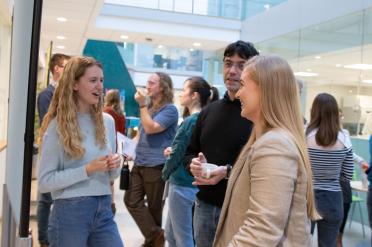Postgraduate Studies
Study for a PhD at the Earlham Institute and open up a world of opportunities for you to develop, learn, and face new challenges.
We are a hub of life science research, training, and innovation focused on understanding the natural world through the lens of genomics. Our mission is to unravel the scale and complexity of living systems so we can understand, benefit from, and protect life on Earth.
We bring together multi-disciplinary expertise across engineering, computational science, and biotechnology with cutting-edge platforms, infrastructure and training.
From developing climate-resilient crops to unravelling the complexities of unseen microbial communities, our research covers the breadth of the life sciences. The PhD projects we support are aligned with our strategic goals, giving you the chance to make a direct contribution to the Earlham Institute’s overall impact.
You’ll work with experienced scientists and have access to state-of-the-art facilities delivering the latest in advanced sequencing and bioinformatics, single-cell genomics, and lab automation.
Our students are part of a collaborative and supportive research faculty, guided by supervisors with international reputations in their fields.
Everyone at the Earlham Institute contributes to, and benefits from, a culture where every individual has the right environment, opportunities, and encouragement to grow and develop.
Discover what PhD life is like at the Earlham Institute, with our PhD Blogs:
We are proud to be part of the Norwich Research Park, a cluster of world-class research centres for biosciences - including the John Innes Centre, The Sainsbury Laboratory and the Quadram Institute Bioscience - and with the University of East Anglia and the Norfolk and Norwich University Hospital right on our doorstep.
Our staff and students work closely with researchers across the Park and collaborate with other Institutes to bring together the right expertise to tackle the scientific challenges we face.
This community is made up of over 2,000 scientists and 13,000 students, 3,300 of which are studying at postgraduate level.
As well as the close links to organisations based on the Norwich Research Park, you’ll be able to enjoy the rich culture, history, and activities on offer in both Norwich and the wider region.
The Norwich Research Park Biosciences Doctoral Training Partnership (NRPDTP) is funded by UKRI-BBSRC and aims to develop bioscience graduates into talented and highly-skilled researchers, innovators, and future leaders through working in multidisciplinary research environments.
The Earlham Institute is one of the five world-class centres of excellence that comprise the NRPDTP partners delivering the programme.
By studying as part of the NRPDTP at the Earlham Institute, you will benefit from:
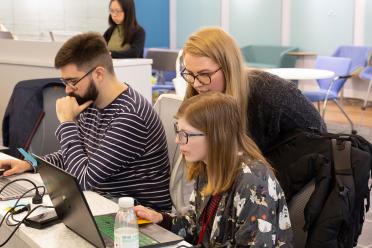
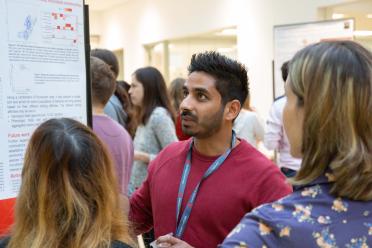
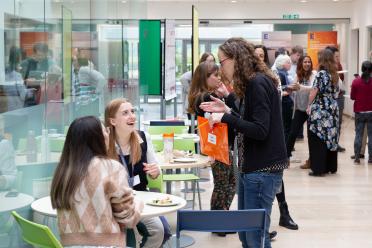

The Earlham Institute has an active and engaged Student Body, who foster a friendly and encouraging network in which to study, including organising regular catch-ups, social events and talks.
The Student Body represents and supports the PhD Student community at the Earlham Institute, meeting regularly with the NBI Graduate School and the Institute’s Post-Graduate Research Director, Dr Conrad Nieduszynski, for formal and informal conversations regarding student well-being and any possible concerns.
We also invite other teams and representatives from across the Earlham Institute to student meetings, to discuss and share information and opportunities available to students.
Norwich is a vibrant and close-knit city and sits in the heart of picturesque Norfolk. There is always plenty to do, and see. Whether organised through our Student Body or with friends in the city centre.

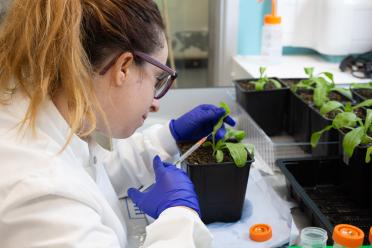
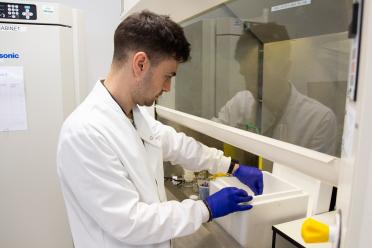
We offer two main types of studentship, Project-based and Self-funded. Applying for the right studentship and securing funding can be daunting but we are here to help. Between our own research faculty office and the Graduate Schools Office, we can support you through your application process, as well as helping you settle in once you arrive.
Students on this programme apply to carry out research on a specific project. In most cases, these projects are conceived by the supervisor and are advertised on our website for competitive applications.
These studentships are usually fully-funded (stipend, fees and research support costs). Students bringing their own funding (e.g. from national governments) may sometimes develop a project plan together with a supervisor. All applicants will be subject to the same assessment for acceptance on our PhD programme.
Most Project studentships involve a four-year period of study, of which the first three years are devoted to experimental work and related training. Students must submit their written thesis by the end of the 4th year. Project studentships will occasionally only provide three year’s funding in which case the student has an additional unfunded Registration-only year in which to complete writing up and submit the thesis.
Many of the projects available will work collaboratively with industry, either organically through the timeline of the project, or through a structured programme known as Industrial CASE (iCASE).
Most PhD projects will involve a professional internship placement (PIPS), which will last around 3 months. Working collaboratively with organisations outside of academia is a great opportunity to see how research can be translated into applications for societal benefit.
Find out more about the application process:
https://biodtp.norwichresearchpark.ac.uk/how-to-apply
The PhD programme at the EI has already gained a reputation for training multidisciplinary scientists, equipped with diverse skills sought after across academia and industry.
We welcome applications from externally funded and self funded PhD students throughout the year.
More details about the application process and prerequisites
If you have any queries relating to student opportunities with us, please contact the NBI Graduate Schools Office, located within the Earlham Institute building.
Graduate Schools Office
Earlham Institute
Norwich Research Park
Colney, Norwich
NR4 7UZ
